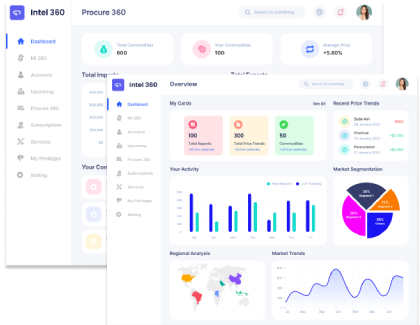In February 2024, the pharmaceutical industry marked a significant leap forward with several groundbreaking drug approvals by multiple regulatory authorities including the U.S. Food and Drug Administration (FDA). These approvals span a variety of conditions, from eosinophilic esophagitis (EoE) and metastatic pancreatic ductal adenocarcinoma (PDAC) to non-small cell lung cancer (NSCLC) and acute myeloid leukemia (AML). This article delves into the details of these recent approvals, offering a comprehensive overview of each drug, its therapeutic potential, and the broader implications for patients, healthcare professionals, and the pharmaceutical market.
EOHILIA: A Novel Approach to Eosinophilic Esophagitis (EoE)
On February 12, 2024, Takeda's EOHILIA, a budesonide oral suspension, stood out as the first and only FDA-approved oral therapy for eosinophilic esophagitis (EoE). Approved for individuals aged 11 and older, its thixotropic formulation targets the inflammation characteristic of EoE directly in the esophagus. The approval was based on two pivotal trials, where it successfully enabled histologic remission and showcased efficacy along with reduced dysphagia symptoms, achieving a major milestone of advancement in EoE treatment options.
EoE is a chronic, immune-mediated, inflammatory disease occurring in the esophagus. The major cause of this condition is uncertain, however, it is believed to be triggered by several stimuli including certain foods and environmental allergens. The oral suspension is further expected to be available in easy-to-use, single dose stick packs of 2 mg/10 mL by the end of February.
NALIRIFOX: A New Standard for Pancreatic Cancer
On February 13, 2024, the United States FDA approved the NALIRIFOX regimen, comprising liposomal irinotecan (Onivyde), 5-fluorouracil (5-FU), leucovorin, and oxaliplatin (NALIRIFOX), as the first-line treatment of pancreatic cancer. This approval supported by the phase 3 NAPOLI 3 trial has offered hope by substantially enhancing overall survival and progression-free survival in comparison to the previous standards.
Pancreatic cancer is the 12th most common cancer worldwide. The prevalence is higher in women, making it the 11th most commonly occurring cancer in the female population. It is also recognized for its aggressive nature and limited treatment responsiveness.
Advancements in Non-Small Cell Lung Cancer (NSCLC) Treatment: FDA Approval for Tepotinib
On February 15, the FDA approved the administration of Tepotinib for treating non-small cell lung cancer with MET exon 14 skipping alterations. Based on promising results of the phase 2 VISION trial, the drug efficacy was evaluated in 313 patients, who were administered with 450 mg dosage. Similarly, the combination of osimertinib with chemotherapy was approved for locally advanced or metastatic non-small lung cancer with specific EGFR mutations, based on the FLAURA2 trial.
During the trial, edema, nausea, fatigue, musculoskeletal pain, diarrhea, dyspnea, decreased appetite, and rash were among the most common adverse events among people (20%). This approval has showcased the FDA’s commitment to personalized medicine which is additionally a hope for patients with specific genetic markers.
Hope for Treating Acute Myeloid Leukemia as New Drug Gets FDA Nod
In February 2024, KME-0584 received FDA clearance as an investigational new drug (IND). Designed to treat relapsed/refractory (R/R) acute myeloid leukemia (AML) and high-risk myelodysplastic syndrome (MDS), KME-0584 is an investigational interleukin 1 (IL-1) receptor. The clearance allows the start of Phase 1 trial.
The drug is intended to be used as a standalone as well as combination treatment alternative, enhancing the scope of its effectiveness in patients. As per EMR estimations, the Acute Myeloid Leukemia treatment market size is expected to grow at a CAGR of 11.4% during the forecast period of 2025-2034. Increased research and development initiatives, leading to advent of such drugs is likely to drive market growth in coming years.
BAY 2927088 for Non-Small Lung Cancer Receives Breakthrough Therapy Designation
On February 26, 2024, a breakthrough therapy designation was assigned to BAY 2927088 which exaggerated the continuous efforts to address the unmet needs of NSCLC patients with HER2-activating mutations. This novel oral tyrosine kinase inhibitor has the potential to provide a targeted treatment option for patients with limited therapies which showcases how significant is precision oncology.
This designation is supported by initial clinical evidence from the Phase I, open-label, multicenter first-in-human study (NCT05099172) evaluating the safety, pharmacokinetics, and preliminary efficacy of BAY 2927088 in adult patients with advanced NSCLC rescuing HER2 or EGFR.
Market Implications and Future Outlook
The recent FDA approvals showcase the abundance of innovative treatments and the shifting landscape of the pharmaceutical market. Each approval brings a unique set of market implications, from altering treatment algorithms and setting new standards of care to impacting drug pricing and reimbursement strategies.
For instance, EOHILIA's entry into the EoE market challenges existing treatment modalities, potentially leading to a paradigm shift in management strategies for this chronic condition. Similarly, the approval of NALIRIFOX for PDAC may redefine first-line treatment standards, affecting the market share of existing therapies.
The approvals in NSCLC highlight the increasing role of genetic testing and personalized medicine in cancer treatment, potentially driving demand for companion diagnostics. Meanwhile, innovations like KME-0584 and teclistamab underline the pharmaceutical industry's commitment to addressing hard-to-treat cancers, opening new revenue streams, and fostering competition among drug manufacturers.
Furthermore, these approvals are expected to spur further research and development in their respective fields. The success of these drugs could pave the way for additional indications, combination therapies, and even more innovative treatments. As the pharmaceutical landscape continues to evolve, staying abreast of these developments will be crucial for healthcare professionals, patients, and industry stakeholders alike.
February 2024 marked a pivotal moment in the pharmaceutical industry, with the FDA's approval of several groundbreaking drugs offering new hope to patients across various conditions. These developments not only highlight the industry's innovative potential but also set new benchmarks for future therapeutic advancements. As we look forward, the impact of these approvals on patient care, market dynamics, and the broader healthcare ecosystem will be profound, heralding a new era of medical treatment and personalized care.




















Share